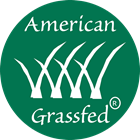
Grassfed Producers Can Help The Planet; Meatless Monday Cannot: The result of the Climate Friendly Farming Panel
Carrie was a featured speaker on the Climate Friendly Farming Panel where she discussed how Grassfed farming/ranching and regenerative grazing practices for livestock can actually improve soil, plant, and animal health for an overall positive impact on the Earth and Earth’s Climate.
She was joined by:
- Elena Neri, Italy, head of INDACO2
- Emanuela Ceruti, Italy, producer of the Macagn Presidium
- Peggy Neu, USA, Meatless Monday campaign director
- Fabien Santini, Belgium, DG Agri
The main message and theme that emerged from this panel was to understand that animals on the land in a way that they are living naturally, not existing in a factory is the most key component to changing the tune in people’s heads and on scientists lips when talking about emissions. The problem as also stated by Elena Neri and Fabien Santini was that the CAFOs and the distributions processes to make those system successful are a huge issue in green house gas emissions. It was proven that if animals are kept on pasture, fed a diet consistent with what they are supposed to eat (forage not cereals), and consumers are purchasing locally made goods from the local, small pasture famers (not goods shipped internationally), the emissions and carbon footprint are reduced significantly. In addition, it was also shown that the production of the cereals needed to feed the massive amount ruminants kept in CAFOs was just as bad for the climate for two reasons – soil degradation from industrialized monoculture and emissions from tractors, processing facilities, and shipping methods.
Emmanuela Ceruti, explained that she is scared that when people do not understand why farming as she does is positive, why eating and producing meat and goods from animals is beneficial, and why buying local is important, not only will she lose her livelihood for her family but her way of life will eventually be a thing of the past. People will go to small family farms like hers where animals are out on pasture and vegetables are rotated and grown by season to see it as an exhibit, like a museum for how food was grown and how farmers lived once upon a time.
Hearing these stories and seeing initiatives like Meatless Monday now pushing not just for a reduction in consumption but as a way to begin the journey to vegetarianism or veganism is alarming and frankly dangerous. To be clear, AGA is not against vegetables or eating a bulk of vegetable as a diet but we do believe in eating meat. Eat less meat of better quality is what we are saying. Not eating meat on Monday, and not eating meat at all isn’t fixing the problem. We need to go back to eating the right meat and foods ALL the time. Go back to supporting the local Grassfed farmer, not the CAFOs.
In the end, the most key idea came down to this – WE HAVE TO STOP BLAMING THE ANIMAL AND THE FOOD TYPE AND LOOK AT THE METHOD OF PRODUCTION, DISTRIBUTION, AND LABELING POLICIES ON COUNTRY OF ORIGIN!
The conference wrap up!
The conference has come to a close and we are leaving with a bigger sense of purpose, new friends and alliances, reinvigorated about achieving our goals, and inspired to always continue to improve and educate.
It was 4 days of extensive panels and interesting networking opportunities that cannot be found anywhere else in the world. We were able to workshop ideas with international grassfed leaders and provide insight and discussion to their own set of questions and topics brought to the table. We got to visit the very first Eataly – which is one of my favorite places to visit for food in NYC- so that was a huge win for me personally. We even fit in a bit a time to see the surrounding city area which hold history and beauty at almost every turn.
Again, the take-aways and insights we have gotten from this conference were truly refreshing and motivating. We cannot wait to come back again in 2020!


